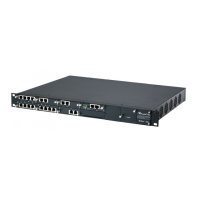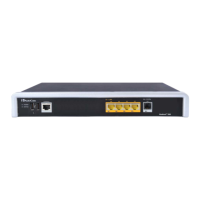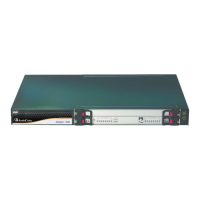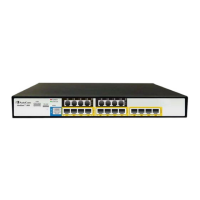User's Manual 630 Document #: LTRT-89730
Mediant 3000
Parameter Description
Manipulation'' on page 827.
Note: If you need to manipulate calls of many different destination URI
user names, you can use tags (see 'Destination Tags' parameter below)
instead of this parameter.
Destination Host
[IPOutboundManipulation
_DestHost]
Defines the destination SIP URI host name - full name, typically located in
the Request-URI and To headers.
The default value is the asterisk (*) symbol (i.e., any destination host
name).
Destination Tags
dest-tags
[IPOutboundManipulation
_DestTags]
Assigns a prefix tag to denote destination URI user names corresponding
to the tag configured in the associated Dial Plan.
The valid value is a string of up to 20 characters. The tag is case
insensitive.
To configure prefix tags, see Configuring Dial Plans on page 633.
Note:
Make sure that you assign the Dial Plan in which you have configured
the prefix tag, to the related IP Group or SRD.
Instead of using tags and configuring the parameter, you can use the
'Destination Username Prefix' parameter to specify a specific URI
destination user or all destinations users.
Calling Name Prefix
[IPOutboundManipulation
_CallingNamePrefix]
Defines the prefix of the calling name (caller ID). The calling name
appears in the SIP From header.
The valid value is a string of up to 37 characters. By default, no prefix is
defined.
Message Condition
[IPOutboundManipulation
_MessageConditionNam
e]
Assigns a Message Condition rule as a matching characteristic. Message
Condition rules define required SIP message formats.
For configuring Message Condition rules, see ''Configuring Message
Condition Rules'' on page 602.
Request Type
[IPOutboundManipulation
_RequestType]
Defines the SIP request type to which the manipulation rule is applied.
[0] All = (Default) all SIP messages.
[1] INVITE = All SIP messages except REGISTER and SUBSCRIBE.
[2] REGISTER = Only SIP REGISTER messages.
[3] SUBSCRIBE = Only SIP SUBSCRIBE messages.
[4] INVITE and REGISTER = All SIP messages except SUBSCRIBE.
INVITE and SUBSCRIBE = All SIP messages except REGISTER.
ReRoute IP Group
[IPOutboundManipulation
_ReRouteIPGroupName]
Defines the IP Group that initiated (sent) the SIP redirect response (e.g.,
3xx) or REFER message. The parameter is typically used for re-routing
requests (e.g., INVITEs) when interworking is required for SIP 3xx
redirect responses or REFER messages.
The default is Any (i.e., any IP Group).
Notes:
The parameter functions together with the 'Call Trigger' parameter
(see below).
For more information on interworking of SIP 3xx redirect responses or
REFER messages, see ''Interworking SIP 3xx Redirect Responses''
page 570 and ''Interworking SIP REFER Messages'' on page 572,
respectively.
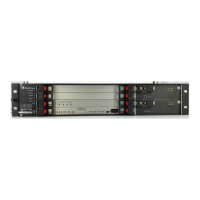
